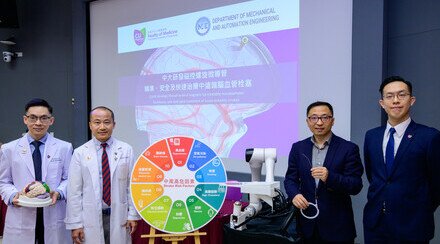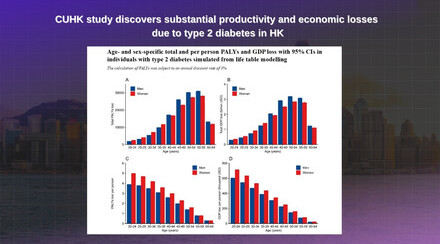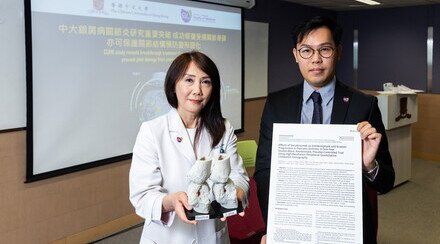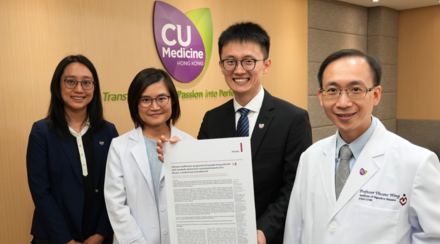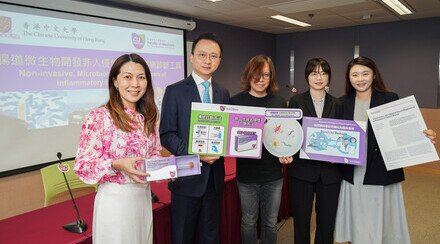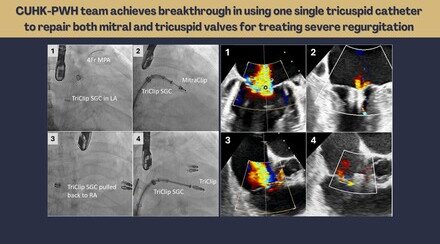CUHK Pioneers in Developing Standardised Tests for Screening Cognitive Impairment in the Ageing Population in Hong Kong
Dementia prevention starts from early detection; and cognitive assessment tools are essential for detection. The Faculty of Medicine at The Chinese University of Hong Kong (CUHK) developed and validated two standardised tests for identifying early cognitive decline in the ageing population in Hong Kong. The tools are now widely used by healthcare and social welfare professionals in the territory.
Early detection is the key to prevent cognitive decline
Dementia affects one in every ten older adults in Hong Kong. The number of people suffering from dementia is also estimated to more than double, increasing from 115,000 in 2016 to around 240,000 in 2036. Population ageing in Hong Kong is expected to be a rising burden to our society.
Prof. Vincent Chung Tong MOK, Mok Hing Yiu Professor of Medicine and Head of Division of Neurology, Department of Medicine & Therapeutics, Faculty of Medicine at CUHK stated, “Dementia is an age-related health condition. Early detection of cognitive decline enables timely interventions aimed to slow or prevent further cognitive deterioration. However, these efforts are effective if they are used when the disease is still at an early stage. The sooner we can detect, the sooner we can intervene before too much damage occur in the brain. A valid cognitive test is the crucial component in the first step in the diagnosis of cognitive impairment.”
Neurology team first to validate a Hong Kong version of MoCA
There is a wide range of cognitive assessment tools available. The Montreal Cognitive Assessment (MoCA) is a brief and valid instrument for screening of early cognitive impairment. Its validation study showed the sensitivity of MoCA in detecting early cognitive impairment reached 90% and its specificity reached 87%. The tool is now being used in 200 countries and available in more than 60 languages and dialects.
The Division of Neurology of the Department of Medicine & Therapeutics of the Faculty of Medicine at CUHK collaborated with the author of MoCA, Dr Ziad NASREDDINE,in 2007 to develop a Hong Kong version named “Montreal Cognitive Assessment Hong Kong Version (HK-MoCA)”.
Professor MOK explained, “The MoCA has been validated in more than 600 international studies and it is shown to be a sensitive and reliable tool in detecting cognitive impairment at early stages. We adapted the MoCA to fit the language and cultural characteristics of Hong Kong so it is suitable for use in the local population. It is of paramount importance that we have a locally validated tool to detect cognitive impairment at the early stage.”
First in the world to develop 5-minute protocol
In 2015, Dr. Adrian WONG, Research Assistant Professor and Clinical Psychologist of Division of Neurology, Department of Medicine and Therapeutics, Faculty of Medicine at CUHK, in collaboration with the National Institute of Neurological Disorders and Stroke of the United States and the Canadian Stroke Network, developed the world’s first 5-minute protocol of the MoCA.
The Montreal Cognitive Assessment 5-Minute Protocol Hong Kong Version (HK-MoCA 5-Min Protocol) is a brief version of the HK-MoCA. It’s a valid and reliable cognitive test which is useful for patients who cannot draw; for example, stroke patients or those who refuse to use a pen. It can even be administered over the telephone to reach out to more people with unidentified cognitive impairment.
Reference scores for accurate classification
Classification of patients using a single cutoff score may lead to misclassification and misdiagnosis. Hence, the team conducted a study in 2015 to examine the discrepancy between single versus age and education corrected cutoff scores in classifying performance on the HK-MoCA and the HK-MoCA 5-Min Protocol.
In this study, the team collected data from close to 800 elderly people in Hong Kong who were independent in their daily functioning. They used brain magnetic resonance imaging (MRI) to screen out brain pathology such as tumours and potential Alzheimer’s disease and derived sets of reference scores for different age and education levels for the HK-MoCA and HK-MoCA 5-Min Protocol.
Dr. WONG stated, “We believe ‘one cutoff never fits all’. With the reference scores we generated in the study, misclassification of patients was reduced by almost 75%. People of different age and education levels have their own set of reference scores for the two HK-MoCA protocols. Our team also developed alternate versions of the protocols to further enhance accuracy in measuring cognitive functions overtime.”
HK-MoCA will be a common language for medical-social collaboration on dementia services
Currently, the HK-MoCA and the HK-MoCA 5-Min Protocol are listed by the Hospital Authority as the recommended cognitive screening tools.
Dr. WONG added, “Both tests can be administered by social and healthcare professionals of different disciplines such as nurses, therapists and social workers, in both hospitals and the community. With the HK-MoCA, all professionals working with patients suffering from dementia can speak a common language when it comes to assessing people with cognitive decline. To enhance medical-social collaboration in dementia care, we have been organising training workshops in the use of the HK-MoCA for professionals.”
Since 2016, the team has provided training to over 4,500 social and healthcare professionals from different hospitals and NGOs all over Hong Kong. Yet be reminded the public that the MoCA assessment tool is intended for professional use only; and it should be protected with limited exposure to the public for the test to remain valid.
The validation studies on HK-MoCA, HK-MoCA 5-Min Protocol, the HK-MoCA reference scores and the HK-MoCA workshops were supported by General Research Fund of Research Grant Council, the Health and Health Services Research Fund of the Food and Health Bureau of the Hong Kong SAR Government, CUHK Direct Grant for Research and CUHK Knowledge Transfer Project Fund.
About the Montreal Cognitive Assessment (MoCA)
The Montreal Cognitive Assessment (MoCA), developed by Dr. Ziad NASREDDINE in Montreal, Canada in 1996 and published in 2005, is a cognitive screening test covering a comprehensive set of cognitive domains. These include executive functions, visuospatial functions, naming, attention and working memory, language, abstraction and orientation which are affected in common cognitive disorders such as Alzheimer’s disease, stroke and cerebral small vessel disease. To date, the MoCA is available in more than 60 languages and dialects. It has been validated in more than 600 international studies and is shown to be a sensitive and reliable tool for the detection of early cognitive impairment.

The Faculty of Medicine at CUHK developed and validated two standardised tests for early detection of people suffering from dementia. The two tests are “Montreal Cognitive Assessment Hong Kong Version (HK-MoCA)” and “Montreal Cognitive Assessment 5-Minute Protocol Hong Kong Version (HK-MoCA 5-Min Protocol)”. (From left: Prof. Vincent Chung Tong MOK, Mok Hing Yiu Professor of Medicine and Head of Division of Neurology, Department of Medicine & Therapeutics, Faculty of Medicine at CUHK and Dr. Adrian WONG, Research Assistant Professor and Clinical Psychologist of Division of Neurology, Department of Medicine and Therapeutics, Faculty of Medicine at CUHK)

Dr. Adrian WONG says the “HK-MoCA 5-Min Protocol” is the world’s first 5-minute protocol of the MoCA. It is useful for patients who cannot draw and can even be administered over the telephone to reach out to more people with unidentified cognitive impairment.

Prof. Vincent Chung Tong MOK says the two sets of tools are now widely used by healthcare and social welfare professionals in the territory. Their team has provided training to over 4,500 social and healthcare professionals from different hospitals and NGOs all over Hong Kong.

Dr. Adrian WONG (right) and Dr Ziad NASREDDINE, the author of MoCA





















